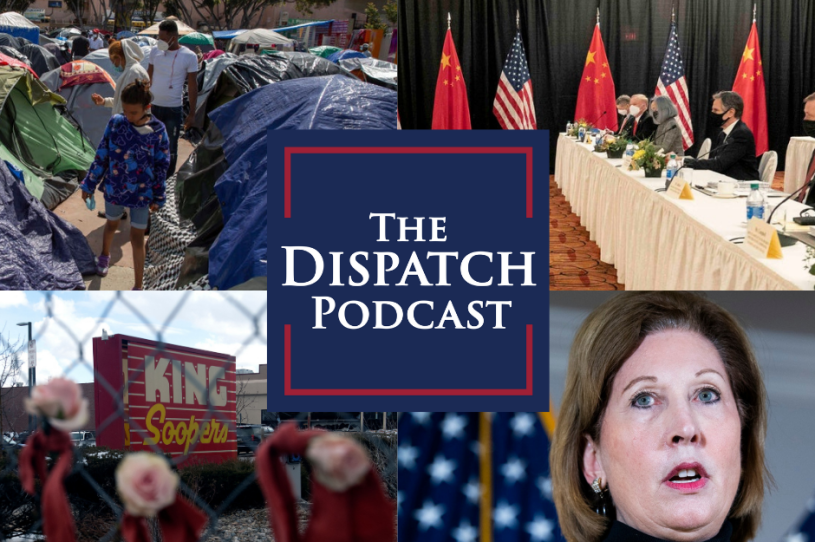The World as It Is

This week (so far) we have seen a mass shooting, a crisis at the border, a major walkback from President Trump’s favorite lawyer, Sidney Powell, and more. On today’s Dispatch Podcast, Steve, Sarah, Jonah, and David talk about all of it and then some. Gun violence has been front and center in the news, and rather than yelling about it, the gang has a well-informed, meaningful discussion about how best to solve this problem in the U.S. Plus, after discussing the border and China, all four talk about just how ridiculous the motion by Sidney Powell to dismiss the case against her is and what it means for center-right media. As Jonah puts it, “If you gave her a platform on your network, on your radio show, either in person or by proxy or simply reading their stuff and then you don’t tell your audience that this woman … has treated you all like suckers … then you’re part of the problem.”
Show Notes:
–Study on effectiveness of state gun regulations
–American Psychological Association study on gun laws
–Washington Post Fact Check on 1994 assault weapons ban
–Reuters article on how and why kids are “smuggled” into the U.S.
–Is there a “surge” at the border? Washington Post looks at the data
–Jonah’s column on the China bilateral meeting
–Last week’s Dispatch Podcast with Danielle Pletka
–The Morning Dispatch: ‘The Kraken is Backtrackin’